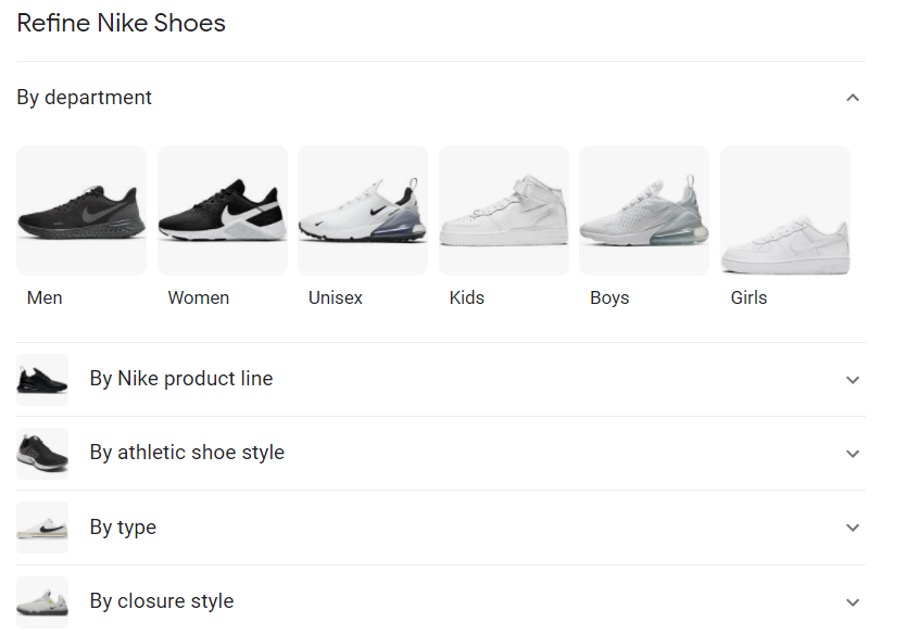Another SEO roundup, another algorithm update. This time, it’s product reviews. If you publish review content, you’ll want to take notice. Google is rewarding websites that provide in-depth, unique product evaluations, and reviewers responsible for generic summaries will quickly find themselves out of favor with the search giant.
In other news, there are several new search engine results page (SERP) features. Google has launched “Refine this search” and “Broaden this search”, and Bing is displaying an opinions section for some terms related to the war in Ukraine.
Merchants will also be pleased about two new features: a trusted store badge and an integration between Merchant Center and Google Analytics.
With all that in mind, here’s your roundup of all the top SEO news and developments from the last two weeks.
Google Implements Product Reviews Algorithm Update
The biggest headline from the last two weeks is Google’s product reviews algorithm update, which will be rolled out over the next several weeks. It’s only a minor change as far as updates go, but it’s an important one nonetheless for merchants.
Review content that excels in terms of research, uniqueness, and actual use (as opposed to straightforward product summaries) will rank above lower quality alternatives.
In a blog post on The Keyword, Google software engineer Perry Liu said, “Our work to improve product reviews will continue, including expanding these updates to more languages beyond English. Ultimately, our goal is to help people find trustworthy, reliable advice when they come to Search — no matter what they’re looking for.”
Google published some additional advice on Google Search Central, which complements existing documentation, for sites with review content. If you generate traffic from product review pages and want to maintain (or even improve) your rankings, you should take note of these new guidelines.
“Refine this search” and “Broaden this search” Launched in US-Based Google Results
Searchers in the US will see two new sections on some English-language SERPs. Refine this search and Broaden this search have now been fully rolled out.

Refine this search provides users with options to jump to more specific results pages. Broaden this search, as you probably guessed, showcases tangential and higher-level topics. Both features put light keyword exploration in the hands of searchers, similar to how people use autocomplete.
Refine this search and Broaden this search hold the potential for traffic gains if leveraged in the right way. Search engine optimizers should consider experimenting with tailoring their content to account for both new features and be conscious of the fact that a reduction in traffic to some pages may be a result of users interacting with them.
Bing Displays New Sections for Terms Related to Ukraine War
Towards the start of the Russia Ukraine war, search engines began displaying dedicated widgets in response to relevant search terms.
Bing recently implemented an Opinions section that contains links to opinion pieces from news outlets. Opinions sits alongside a general information box and events timeline.
This is a notable development because it provides context for current affairs articles, which is likely to help stem the flow of misinformation. Search engines have come under fire in recent months for failing to regulate fake news.
News outlets will be particularly interested in the opportunities Opinions provides for increasing exposure of relevant journalistic pieces and columns.
Some Merchants Qualify for Trusted Store Badge
Earlier this month, Google launched the Shopping experience scorecard, which rewards merchants that meet certain customer service criteria, specifically related to shipping and returns. Merchants that surpass these standards will receive a Trusted Store badge that appears on free Google Shopping listings.
The Trusted Store badge will be rolled out over the coming months. Google said early testing showed increased levels of engagement with listings that showcase the badge. So if you promote products with free Google listings, there’s no reason not to take advantage of this opportunity.
Google Announces Merchant Center and Google Analytics Compatibility
In an announcement on March 21st, Google said that it’s now possible for retailers to link their Merchant Center with their Google Analytics account. Doing so will allow users to see conversions from free product listings, thus measuring the effectiveness of Merchant Center product data.
Getting set up is a relatively straightforward process (auto-tagging needs to be turned on). This new functionality ties in nicely with the upcoming release of the Trusted Store badge and will give merchants the ability to track conversions in line with Shopping experience scorecard factors.
Google Introduces Grid Layout for Some Mobile Search Results
Some mobile queries now return visual grid results alongside traditional text ones. Certain keyword phrases, like “wallpaper ideas” and “hand tattoos,” show images in addition to titles and descriptions.
Notably, many queries generate mobile results that display side-by-side, leading some commentators to ask if there are now two first-place positions.
From the perspective of conversions and traffic, there are both drawbacks and potential benefits to a grid layout. Having a visual element included as part of results offers opportunities to entice visitors with original, striking images. On the other hand, web admins that haven’t given much attention to visual assets or currently occupy the first spot may see a decrease in clicks.
Google Says Alt Tags Only Relevant for Image Results
Google Search Advocate John Mueller clarified the role of image alt tags in an SEO office-hours hangout.
While it’s good practice to add alt tags to increase site accessibility, they don’t act as a ranking factor for pages. Google only uses them for image search.
Web admins who don’t care about visual assets showing up in image search don’t need to worry too much about optimizing alt tags.
Google Considered Eco-Friendliness as a Ranking Factor
Here’s an interesting little tidbit to finish off with. In a recent tweet, John Mueller said that Google has previously explored ways in which it might reward eco-friendly sites with a ranking boost.
Google has made numerous environmental commitments and aims to be carbon-free by 2030. And while it is pure speculation to suggest that the algorithm will one day account for environmental factors, comments like the one by John Mueller may point to interesting future developments.
